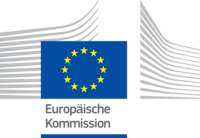EU Commission Aims for Uniform Educational Standards by 2025

At the Social Summit of EU heads of state and government on 17 November in Gothenburg, the EU Commission presented its plans and ideas for a European education zone. The vision foresees a stronger alignment of the different education systems across all EU member states, along with mutual recognition of school and university diplomas, the creation of a network of European universities, cooperation on curricula development, improvement in computer and language skills, and more support for lifelong learning.
‘In 2025 we should live in a Europe where learning, going to university, and doing research is not impinged by borders, but rather one in which a spending time abroad in other member states for university, school or work is simply the norm’, declared Commission Vice-President Jyrki Katainen.
Background
Responsibility for education and culture lies primarily with the member states on a national, regional and local level. But the European Union has long played a supplementary role in fostering cross-border activities. Since the founding of the Erasmus Programme 30 years ago (Erasmus+ since 2014), for example, 9 million people have been able to study, train, teach or volunteer in another country. In the context of the Europe 2020 Strategy, the EU set two educational goals in 2010 and has since achieved tangible progress: The school dropout rate sank from 13.9% in 2010 to 10.7% in 2016; by 2020 the goal is 10%. The rate of university graduation has risen from 34% in 2010 to 39.1% in 2016, with a goal of 40% by 2020. The Commission is convinced that now is the time to build on this foundation and become much more ambitious.
Editorial staff (alb)
Sources
Der Spiegel, 15 November 2017; European Commission, 14 November 2017